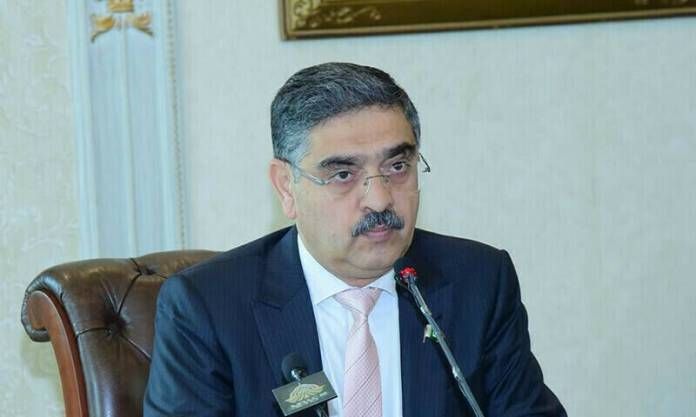In a recent interview during his visit to London, Pakistan’s caretaker Prime Minister, Anwaar-ul-Haq Kakar, discussed the potential legal challenges that could affect the upcoming general elections scheduled for the end of January 2024. Prime Minister Kakar made it clear that it would be beyond the control of the interim government if Pakistan Tehreek-e-Insaf (PTI) Chairman Imran Khan were to be legally barred from contesting these pivotal polls.
Kakar emphasized that the fate of Imran Khan is not yet sealed, highlighting the availability of judicial remedies. He acknowledged that if all legal options are judiciously pursued, there is a possibility that Imran Khan may be legally prevented from participating in the electoral process, a scenario entirely dependent on the judicial system.
Addressing another pressing issue, the Prime Minister reiterated that any barring of individuals from participating in the elections would be solely a result of judicial decisions, not executive actions. He emphasized that as the caretaker Prime Minister, he lacks the authority to alter or influence judicial outcomes.
Regarding the return of Pakistan Muslim League-Nawaz (PML-N) supremo Nawaz Sharif from London, Kakar stated that law enforcement agencies would need to carefully deliberate the circumstances, including whether Nawaz Sharif has protective bail or any other legal remedies at his disposal. He stressed the importance of letting the law take its course, particularly since Nawaz Sharif had gone abroad on a court order.
Prime Minister Kakar expressed optimism that the potential arrest of Nawaz Sharif would not lead to agitative politics. Instead, he believed that the PML-N leadership would prioritize participation in the elections over disruptive actions.
Importantly, Kakar assured that the PTI, as a political party, would not face any restrictions preventing its participation in the elections. However, he underlined that individuals charged with inciting violence or engaging in criminal behavior would be subject to the laws of the land.
The Prime Minister emphasized that his government remains committed to ensuring that the upcoming elections are free and fair, with transparency as a top priority. He expressed confidence in achieving all indicators of transparent elections.
Addressing allegations made by Imran Khan against the military, Kakar countered that the same military had worked closely with the PTI chief during his tenure, with Imran Khan himself taking credit for the collaborative efforts.
Shifting the focus to Pakistan’s sacrifices in the war against terrorism, Kakar revealed that the nation had lost over 90,000 lives in this enduring battle, as it took on the responsibility alone after international forces withdrew from the region. He commended Pakistan’s military and paramilitary forces for their commendable efforts in combating terrorism.
As for the renewed challenges posed by terrorist attacks, Kakar attributed them to the surplus military equipment left behind by the U.S. and UK after their withdrawal from Afghanistan. He pointed out that the Afghan army, equipped with modern weaponry, saw its equipment end up on the black market after the withdrawal.
Kakar acknowledged that Pakistan was grappling with the Tehreek-e-Taliban Pakistan (TTP) on its soil and identified their asylum in Afghanistan as a contributing factor to the ongoing problem.
Switching gears to economic priorities, Prime Minister Kakar outlined the government’s actions, including cracking down on illegal currency trading and hoarding. He also disclosed plans for the privatization of state-owned entities such as the Steel Mill, PIA, and Power Distribution Companies (Discos).
While discussing the Election Commission’s mandate to hold elections within 90 days, Kakar referenced Article 254 of the Constitution, emphasizing that a delay in completing a task within the prescribed period does not automatically render it unconstitutional or illegal.
Prime Minister Anwaar-ul-Haq Kakar’s interviews shed light on the intricate legal challenges and complexities surrounding the upcoming general elections. With a firm commitment to upholding the rule of law and ensuring transparent elections, the caretaker government navigates a critical juncture in Pakistan’s political landscape.


